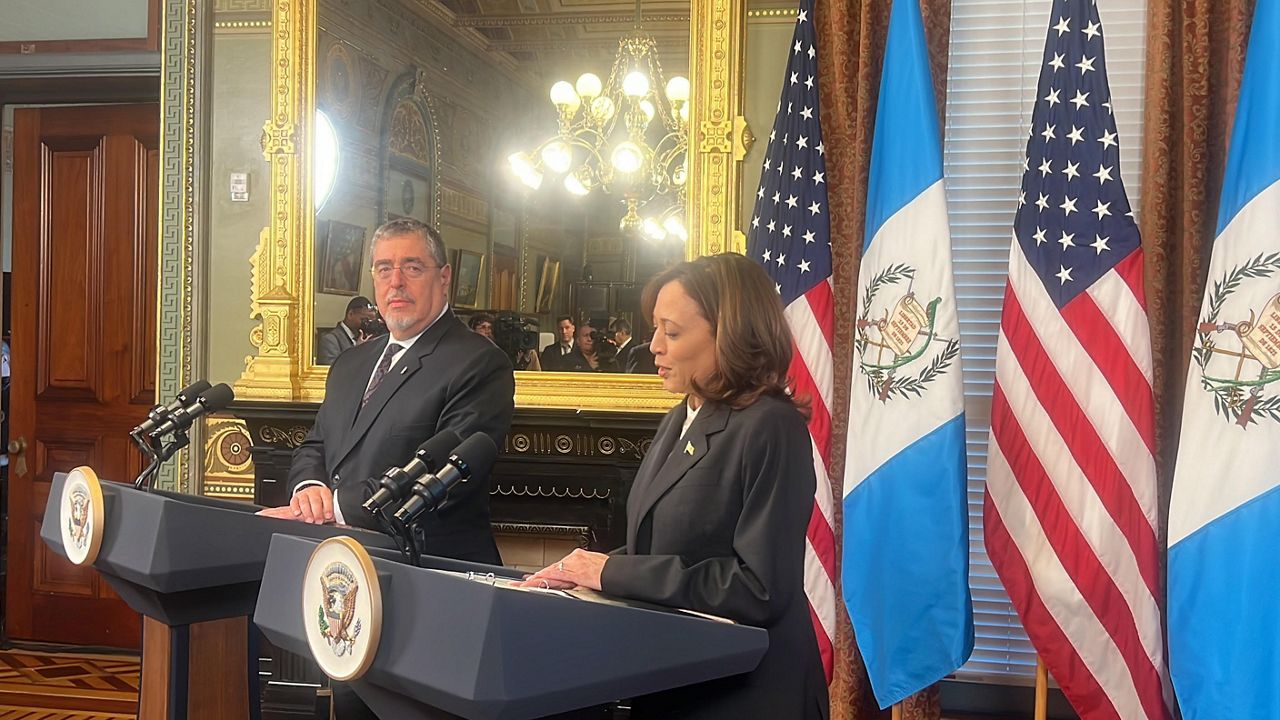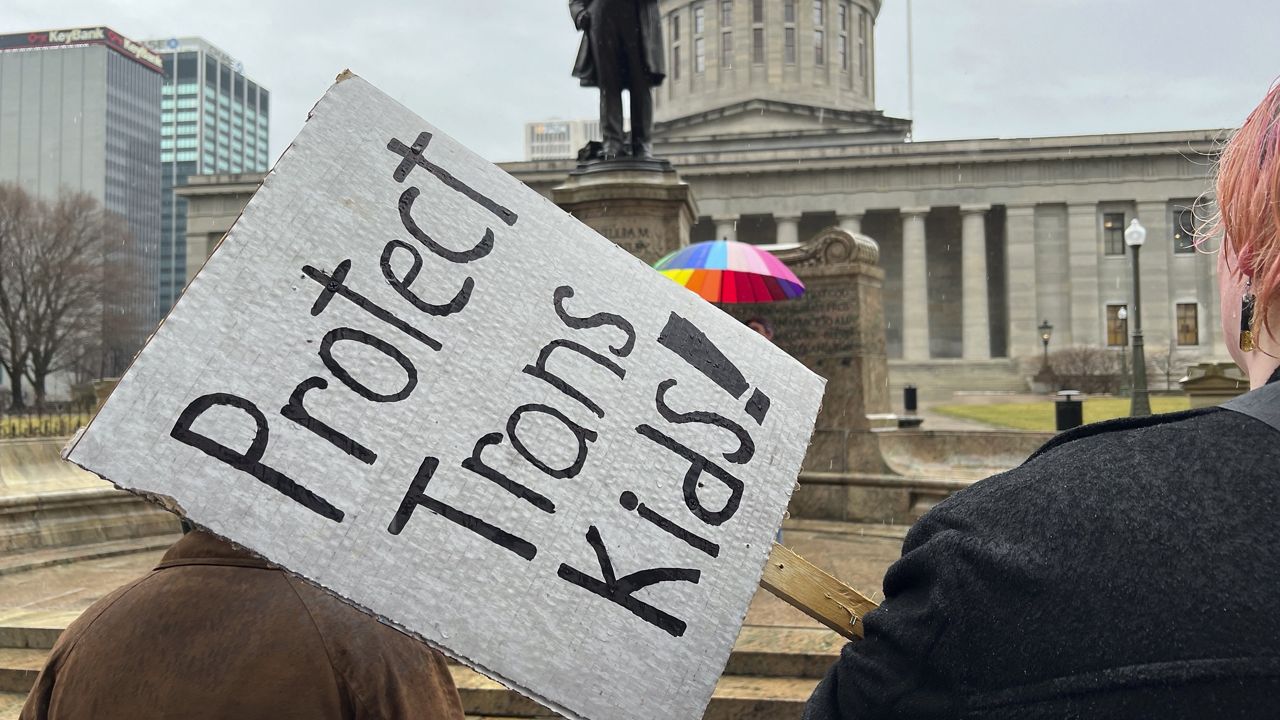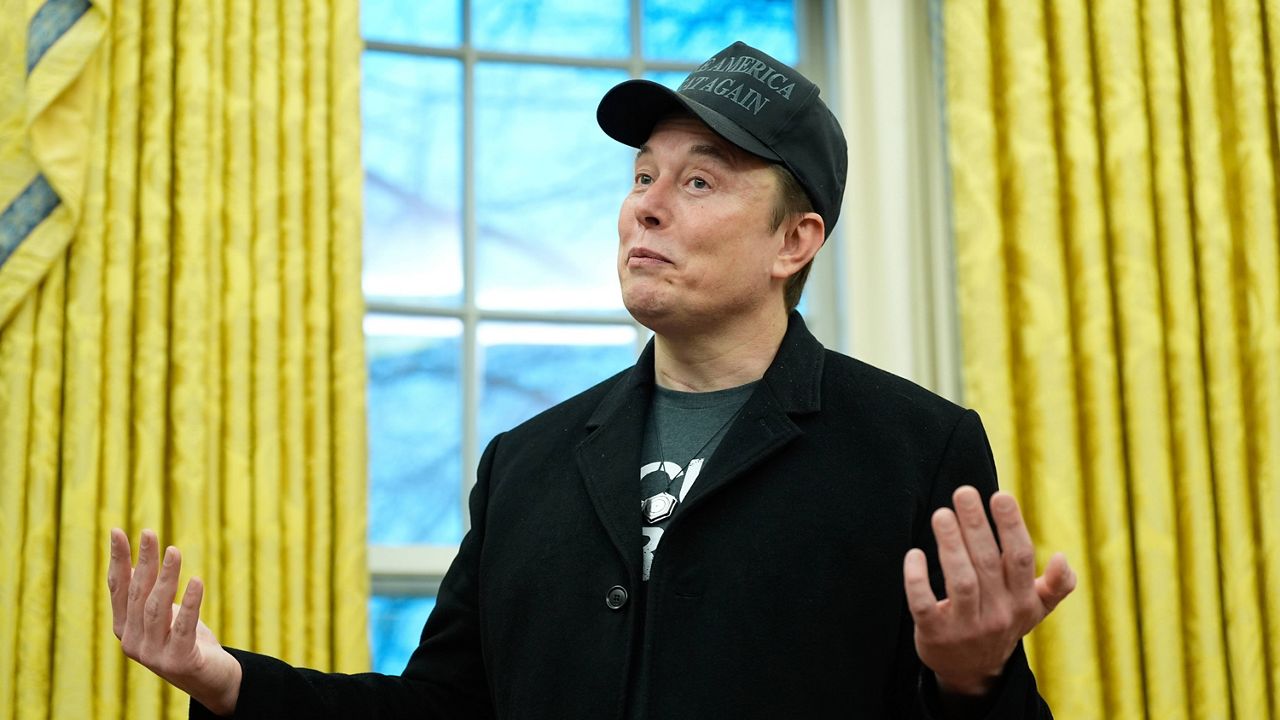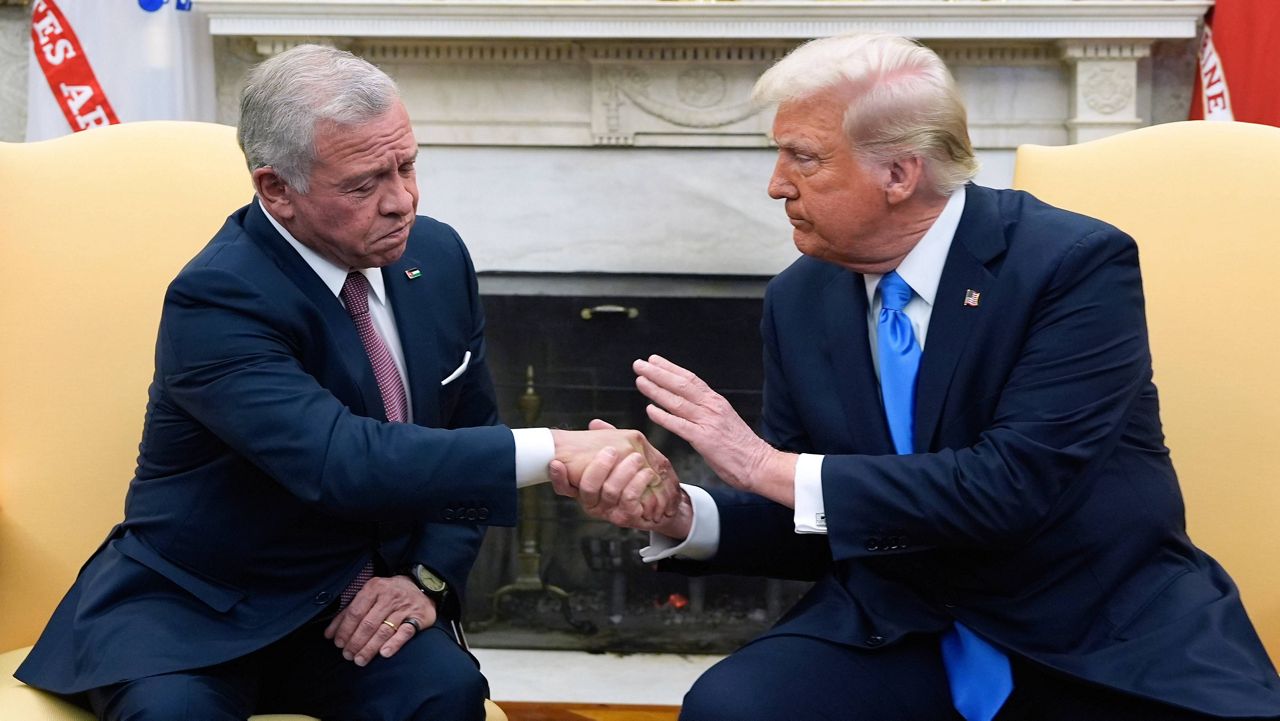Vice President Kamala Harris on Monday hosted Guatemalan President Bernardo Arévalo at the White House to talk about the newly-inaugurated leader’s pledge to fight corruption and efforts to address migration as the U.S. wrestles with a surge at its southern border.
Speaking briefly alongside Arévalo in the vice president’s ceremonial office in the Eisenhower Executive Office Building ahead of their meeting, Harris highlighted her role spearheading the Biden administration’s efforts to address “the root causes of migration from Northern Central America,” acknowledging the lead role President Joe Biden assigned her on one of the most hot button topics in the current domestic political landscape.
Harris on Monday went on to tout progress on the administration’s "Root Causes Strategy," which seeks to approach the immigration issue by confronting the reasons why some in Guatemala, El Salvador and Honduras seek to leave the countries. The strategy is based on addressing five areas: economic insecurity and inequity, corruption, human and labor rights, violence and specifically sexual and gender-based violence.
“Our work under the Root Causes Strategy represents long-term development efforts,” Harris said on Monday. “The problems, of course, did not occur overnight, and the solutions will not be achieved overnight. Yet we have seen short-term progress in Guatemala, El Salvador, and Honduras.”
The vice president noted that thus far, the administration’s efforts have helped 63,000 farmers increase production and income, aided in the training of 18,000 police officers and 27,000 people focused on strengthening judicial systems and supported human rights activists.
“This work is improving lives and livelihoods in the region and addressing the factors that drive people to migrate to the United States,” the vice president said, telling Arévalo: "I believe your presidency offers an important opportunity for us to strengthen U.S.-Guatemalan relations and to make further progress on each of the five pillars I have outlined.”
Immigration has taken a center role in Washington as the GOP blames Biden’s policies and leadership for the record number of encounters at the southern border during his presidency. Biden and some Democrats, on the other hand, are blasting former President Donald Trump and Republicans for rejecting a border policy deal that a group of bipartisan Senators and the White House worked out over weeks of negotiations, initially at the request of the GOP.
Arrests from illegal crossings at the U.S.-Mexico border hit a monthly high in December when they reached nearly 250,000 before falling to just less than 125,000 in January. The figure increased slightly in February to just less than 190,000.
Just months after taking office in 2021, Biden tapped Harris to head the administration’s response to the migration challenge.
Meanwhile, the Guatemalan leader – a progressive who pledged to not allow institutions to “submit again” to corruption – and Harris were also set to discuss bolstering Arévalo's anti-corruption agenda.
“As you hold corrupt actors accountable and promote good governance, we support you,” Harris said, she told Arévalo. “Your leadership can help rebuild Guatemalans people's trust in their institutions and give them a sense of hope and opportunity.”
Arévalo, the son of a former Guatemalan president, was elected by a solid margin to lead the country in August but was not sworn into his new role until January after efforts to delay his ascension to the position.
“Your election has brought a sense of optimism to the people of America and around the world,” Harris told Arévalo on Monday. “And despite the challenges that have been posed to Guatemala's democratic process, the United States was proud to stand with you, Mr. president, following a free and fair election and throughout your transition.”
“I view this as a historic moment in relations between our two countries, which share basic values and common interests and confront many joint challenges,” Arévalo told the vice president. “Your ongoing work, which you have described in terms of the initiatives that you have been leading for the Central American region for several years now, are welcomed by all of us who want to strengthen the ties between Guatemala and increase prosperity in our region in general.”
The vice president on Monday also announced more than $1 billion in new commitments from the private sector through a public-private initiative called Central America Forward. Monday’s new investments, the vice president said, brings the total amount of commitments through the program to $5.2 billion since May 2021.
Among the new pledges from companies is one from Meta to train 250,000 young people, entrepreneurs and small business owners in El Salvador, Guatemala, and Honduras by July 2025 and aid more than 9,000 women, including female business owners, in establishing their online presences.
“Central America Forward has thus far created 70,000 new jobs throughout the region, provided skills training for more than 1 million people, brought more than 2.5 million people into the formal financial economy, and connected more than 4.5 million people to the Internet,” Harris said.
The vice president was also set to host a roundtable focused on the initiative on Monday featuring government officials and private sector leaders.








